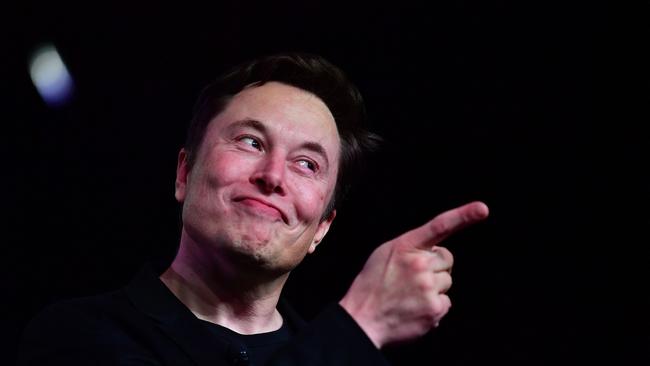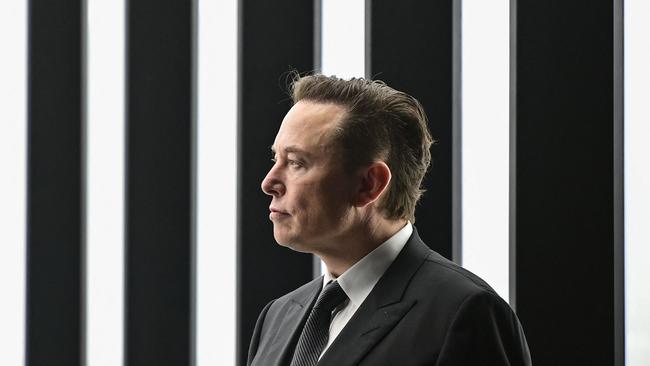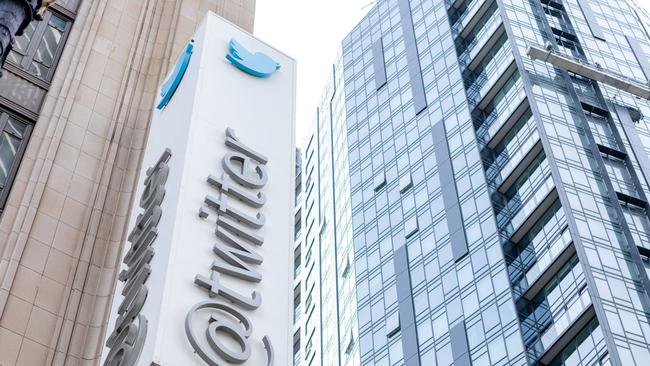
This stands in contrast to those who loudly threatened to leave the blue-bird platform but presumably did so in that ‘If Trump gets elected, I’m moving to Canada’ way.
But the rocket man, Elon Musk, is finding that changing Twitter, described fairly accurately as a left-wing echo, is like herding cats across the Serengeti.
The man who reinvented electric cars and talks effusively about living wages while robots continue their relentless assault on labour, has not been greeted with the bonhomie he may have hoped for.
The question is, will Twitter sink or swim under Musk?

Twitter is the mother of short message or micro-blogging social media networks. Last year it had 250 million active users. Today, with Musk at the helm it has 258 million.
The emerging competitor is Telegram which launched less than a decade ago and has around 55 million daily users. Telegram offers users encrypted end-to-end instant messaging while Twitter’s direct messaging function often fills with bots bearing the avatars of attractive young women dropping in to say “Hi.”
Truth Socials, the platform created by Trump Media and Technology Group in 2021, has around half a million active daily users, bedevilled by a refusal from Google and Apple to have the app available for download due to concerns about content moderation.
There is a social media God’s waiting room where other networks have gone to die. Parler, which has an in-principle agreement to be purchased by Kanye West, has around 40,000 daily users. In social networking terms, it’s not quite screaming at the walls -- more like wearing a sandwich board down the main street of Mudgee.
But for all Twitter’s vast audience, growing each year since its creation in 2006, the company has turned a profit in only two of the last 12 years. In 2020, it lost almost $1.4 billion. Last year, it was a less eye-watering $500 million. All during a pandemic where users were likely to engage more often for longer.
In terms of market capitalisation, Twitter is smaller than Airbnb, less than one fifth the size of Meta (Facebook), and Coca Cola.
The problem with Twitter then and now is that it is a platform that doesn’t offer advertisers the same pull as other social media platforms. Users can ignore sponsored content easily and responses like click-throughs which give advertisers a precise measure on advertising hits and misses are fractional compared to Google and Facebook.
Twitter is not a forum built for advertising. Unlike Instagram and Facebook, the advertising that appears is easily identified and with a quick flick of the index finger it is gone. Users can block advertisers and advertising with keyword exclusions.
Last weekend, Musk tweeted angrily that advertisers were boycotting the company and threatened a “thermonuclear” response. Offering to drop metaphorical hydrogen bombs on the corporations who keep the revenue flowing into the company is odd bluster even by Muskian measures.
Rather than a boycott, advertisers have determined to hold their cheque books to see where Musk, who amusingly refers to himself as the Twitter Complaint Hotline Operator, takes the so-called global town hall forum. One man’s content moderation might be another’s woke cancel culture, but advertisers unsurprisingly aren’t keen to push their wares on the platform that could be bookended by anti-Semitic tropes.
The bright, shiny new owner of Parler (if the deal goes ahead), Kanye West, had his suspension from Twitter lifted earlier this week and while the rapper’s tweets have been few and far between since, many of his fans have posted material in support of West that drips with toxic anti-Semitism.
It might just be that users have grown under Musk’s ownership due to that fundamental trait of human nature that we may not want to watch a train wreck, but we can hardly look away.
Musk sacked half of Twitter’s staff only to acknowledge later that some had been accidentally terminated and have been invited back. Others were told ‘Don’t Come in Monday’ because the work they were doing was considered surplus to requirements. A day later they received a ‘Please Come in Tuesday’ as their work is now deemed critical.
Under Musk, the price of self-importance is now valued at $USD7.99 a month. That’ll get you a blue tick, regardless of who you are or who you pretend to be. It was scheduled to be implemented two days ago but has now been delayed while the previously pink-slipped staff are working away to find content to make that $12 per month for we locals, even more worthwhile.

Relying on advertising as a sole source of revenue was putting Twitter in a death spiral. The only way out is a subscriber revenue stream. Whether it works or not remains to be seen but all the eggs are in that basket with the company now having to fund $1 billion per year in interest payments alone.
Musk has said he wants Twitter to be the world’s best news source. There were moments in its history where Twitter did break news but not for a long time. The Fukushima nuclear disaster in 2011 is one example. The ISIS attack on Paris in November 2015 where Parisians tweeted up the movements of the terrorists, including shocking video, in real time is another.
But there is a preponderance now of video-based social media that can be posted across multiple platforms, Twitter just being one.
Getting your news from Twitter nowadays is like being informed on current events by your uncle who’s been on the green demons since lunchtime. Something happened somewhere (or was it somewhere else?) and it will probably be pretty bad unless it’s not. We’ll be right back with sport and weather.
If a blue bird did fall off the branch in a forest, would anybody lament it?
I remain a Twitter user while acknowledging its many shortcomings. I am enjoying the donnybrook between the owner and its 258 million daily users. There’s often great humour to be found there amid the shrieking and political chicanery. But if it died, I wouldn’t lose any sleep over it. Rumours of Twitter’s demise are premature, of course. It will be around for years to come, in one form or another but like all our internet consumption these days, nothing is forever.



In a resounding slap for the anti-Musk twitterati, the number of active users on Twitter, defined as those who interact with the platform daily, has risen since Elon Musk took the company over.